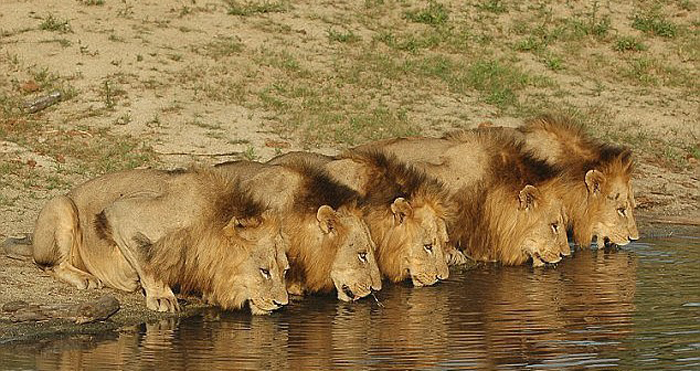Today we talk about how a company scales its talent as the company grows. Can it be done? What do you need to watch for?
So, a conversation that recurs from time to time is this — the talent with which you found and initially grow a company may not be strong enough to grow the company in the mid to long term, and get to the Promised Land.
When you are a band of brothers or sisters, it is beguiling to believe that you have the right mix of people to grow the company to its ultimate size.
This is how co-founders think of themselves when they first found the company. They are killers, happy, genial killers, but still killers. Look at these sweet co-founders.

Beguiling.
The other, and more important in my view, misnomer is that the people you bring on right from the beginning are going to be able to make the entire trip with you. Your first five hires look like this — everybody is a lion. Right?

At first, things go great. Everybody is working together smoothly. Just like this.

But then growth and success rears its attractive head and those who either founded the company or have the low employee numbers have to grow to meet the challenge. Some make it; some do not make it.
Once the growth goes into full swing, some of your “lions” turn out to be “cubs” not full grown lions. What happened to all those full grown lions?
Worse, you may have hired some duds who have transitioned into something that doesn’t really work any more. Some turn into dogs. Some turn into sea lions — not real lions. Some spend all their time barking at each other. It happens.
Sometimes, this shows up in the culture. When it does, you have to act immediately.
Flesh it out, Big Red Car
OK, dear reader, here is what I am getting at. The growth of a company is people dependent. Here are the things to watch for:
1. Sometimes co-founders have to take a hard look at their respective roles and ensure they are the world class talent — for that role — that the growing company needs. This is a very difficult conversation. It is not about ownership; it is about talent, skill set, and the ability to get the job done.
2. Sometimes the first cohort of new hires is not able to grow their skill set at the same rate as the company; or, worse, at the rate the company needs that person to grow. [Hey, sometimes, it works out just fine, so don’t look for trouble. If you find trouble, deal with it.]
That first great salesperson may not be the right person to be your sales manager or your director of marketing. It happens.
That first great graphic designer is not the right person for creative director.
3. Sometimes, you are going to insert additional levels of management and if you hire world class talent — which you should do — you may have an “in effect” demotion for an existing person.
You bring on a new financial person at the Chief Financial Officer level and the former top financial person becomes, in effect, a Controller. You have, effectively, demoted the Controller.
This is just part of growth, as we have discussed at other times.
4. In almost every instance when you bring on world class talent, they are going to be quicker, more experienced, bit older, more confident, more expensive — every one of these inputs creates an unsettling disruption in The Force. Know this.
Understand that as The Force becomes “special” some folks will become very uncomfortable. This discomfort is a negative energy thrown into the culture of the company. Negative energy eats the positive energy required to grow.
In addition, the Special Forces folks are going to be critical of the relative immaturity of the existing company.
5. Sometimes, you simply have a person who has not been able to keep up with the growth of the company. They cannot keep up with their own shadow. They were the right person for then; but, they are the wrong person for now.
Bottom line it, Big Red Car
As a company grows, the founders, the CEO has to be on the lookout for growth dynamic mismatches. You have to spot them before they happen or right after they happen. Ignoring them or putting off dealing with them will sap the growth energy of the company.
You have to deal with it. My 33 years of CEOing experience tells me that there is very little successful missionary work of this type — trying to train people to grow rarely works. OK, I’m just going to say it. It doesn’t work.
I hope somebody told you it would be hard to found and scale a startup? This is one of the things they were talking about — telling your best fraternity buddy or sorority sister that something has to change.
One last thing — when the lion lays down with the lamb, the lamb isn’t going to get much sleep. When you have mismatches, they create an inordinate amount of negative energy that the company has to absorb. [Lamb chops?]
Deal with it. It’s hard to found and run a company. Know it, but act upon it.
But, hey, what the Hell do I really know anyway? I’m just a Big Red Car — but I was a CEO for 33 years and I saw this so many times. Very rarely does the entire team scale at the same rate as the company. A harsh truth.